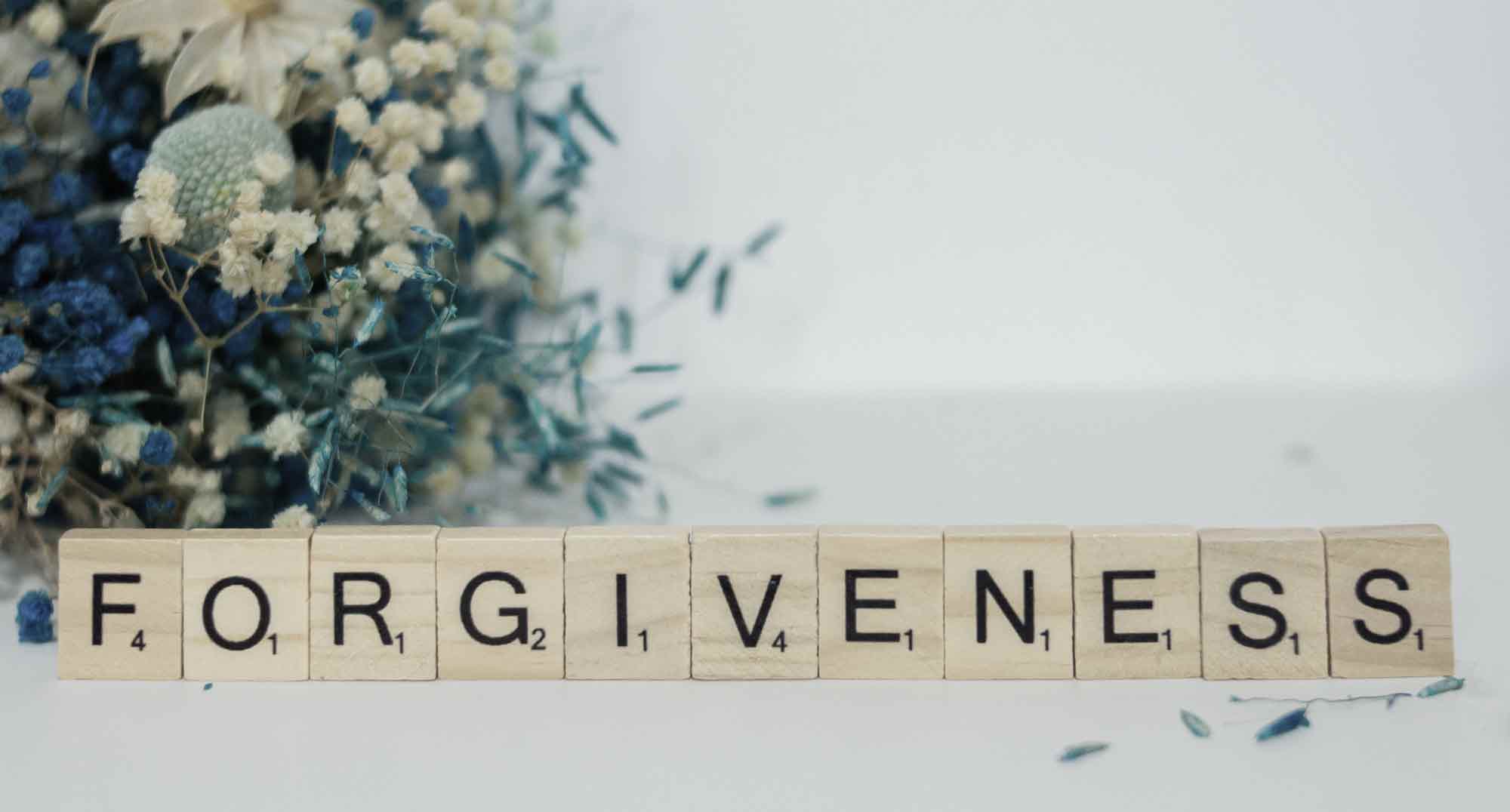ELLEN DYKAS | CONTRIBUTOR
Corrie ten Boom, imprisoned during WWII for sheltering Jews in her home (along with her family), told a powerful story from a speaking event in Berlin. After sharing about God’s love, a man approached her.
Oh, Miss Ten Boom, I’m so glad to see you…don’t you recognize me? She realized he was one of the cruelest guards in the concentration camp where she had been imprisoned with her sister, Betsy. He enthusiastically told her he was now a Christian, marveling at God’s forgiveness for all the cruelties he inflicted on people. But, he said, he prayed that God would give him an opportunity to ask one of his victims for forgiveness. Miss Ten Boom, will you forgive me?
Corrie said, “I could not. I remembered the suffering of my dying sister through him…and I realized that if I did not forgive those who sin against me, my heavenly Father would not forgive me…but I could not [forgive him], but could only hate him.”[1]
Confronting our inner hate and desperation
I’ve not suffered the kind of trauma which Corrie endured, but I have been sinned against, and have confronted hatred in my heart towards evil doers, as well as believers who’ve betrayed me and mishandled my heart. What about you, sister? Today, are you weighed down with lingering pain and anger due to someone’s sin against you? A leader, friend, husband, parent, son, daughter, or boss? Do you resonate with Corrie’s desperate honesty, I can’t forgive, I can only hate?
I know the inner turmoil of bitterness, revenge fantasies, and resistance to see the offender through the lens of the cross. It.hurts.so.much. Maybe like me, you’ve allowed the deceptive nature of your sinful heart to blind you to the reality that bitterness of soul and refusing to forgive are the poisons we drink hoping someone else will die.[2]
Start here: acknowledge your true feelings to the Lord
Sin has the power to change the landscape of our earthly lives and to break our hearts: marriages and friendships end, parents live estranged from their children, diseases enter bodies never to leave, bankruptcy leads to compounded losses, brains and thought-lives become scarred from trauma and addictions. It’s horribly wrong to tell someone to just get over it, or to coerce someone to prematurely verbalize, “I forgive you.” This is not the way of our Savior!
Sister, if you’re struggling to pour out your pained heart to the Lord, take some time to savor these words, which describe God’s heart towards you.
When the righteous cry for help, the Lord hears
and delivers them out of all their troubles.
The Lord is near to the brokenhearted
and saves the crushed in spirit.
Many are the afflictions of the righteous,
but the Lord delivers him out of them all (Psalm 34:17-19).
Understand what forgiveness involves
There is a lot of bad, if not unbiblical teaching out there about forgiveness.
- When you are free of pain, then you’re ready to forgive. This is not true! God never says to base our obedience and faith on our feelings.
- Like God, you must forgive and forget. Except you’re not God! Forgiveness is not “sentimental amnesia.”[3]
- If you can’t trust me, then you obviously haven’t forgiven me. “Forgiveness does not equal rebuilt trust or restoration…love trusts people, or sees them through the lens of the gospel: as sinners for whom Christ died and in whom he can bring beautiful change. Forgiveness can be extended in a moment; trust is earned over time.”[4]
I appreciate Hayley Satrom’s definition, “…forgiveness is extending undeserved grace to wrongdoers, which includes absorbing their debts against us. We read in the Scriptures, ’Bear with each other and forgive one another if any of you has a grievance against someone. Forgive as the Lord forgave you’ (Col. 3:13 NIV).”[5]
There are active steps of faith and obedience for you to engage. Consider the following from Tim Keller[6].
- Identify with the wrongdoer. Forgiveness is difficult for many reasons, including the need to die to self as we identify with Christ in his suffering (1 Pet. 4:12-13). “Forgiveness flounders because I exclude the enemy from the community of humans and I exclude myself from the community of sinners.”[7]
- Inwardly pay the offender’s debt. This is supernatural, Spirit–empowered obedience. It involves facing the full impact of the sin against you, and effectively taking it to Christ’s cross, releasing the offender and their offense to Jesus.
- Overcome evil with good. The biblical command to “not be overcome with evil, but to overcome evil with good” (Rom. 12:21) protects us from taking matters into our own hands, and yielding to the Lord so that the fruit of the Spirit bears out of our hearts. Yet also, it might include enacting consequences of sin to unfold, as a way to communicate the seriousness of sin.
Forgiveness is not easy, once-and-done, or cheap, but requires death to self, perseverance to live it out, and this is very, very costly. It is supremely worth it, however, as it not only honors Christ as supreme, but sets us free from the bondage and ongoing self-wounding of holding on to offences. Corrie did forgive that man she had hated for decades, as in that redemptive, confrontive moment, she remembered our Father’s costly forgiveness of her. She extended her hand to him and “…I felt God’s love stream through my arms…you never so touch the ocean of God’s love as when you forgive and love your enemies. Can you forgive? No, I can’t either, but he can.”[8]
My friend, Jesus and a “cloud of many witnesses” (see Heb. 12:1-3) have gone before you in forgiveness! Look to him, drink in his healing comfort, and ask him to pour his forgiveness out through your yielded heart.
Photo by Alex Shute on Unsplash
[1] https://www.youtube.com/watch?v=ql-TI51LmaY&t=37s, accessed July 6, 2023. This is a brief audio clip from a talk Corrie gave.
[2] I’ve heard different iterations of this quote but don’t know the original source. Let me know if you do!
[3] Brad Hambrick, True Betrayal: Recovering from the Betrayal of Your Spouse’s Sexual Sin, workbook (2017), 39, http://bradhambrick.com/truebetrayal/.
[4] Ellen Mary Dykas, Jesus and Your Unwanted Journey: Wives Finding Comfort After Sexual Betrayal (Leader’s Guide), workbook (2022), 55, https://harvestusa.org/unwantedjourney/.
[5] Hayley Satrom, Forgiveness: Reflecting God’s Mercy, 31 Day Devotionals for Life (Phillipsburg, NJ: P&R Publishing, 2020), p 10. I highly recommend this devotional book which guides you over 31 days to consider biblical forgiveness.
[6] Timothy Keller, “Forgiveness,” July 9, Gospel in Life, podcast, http://podcast.gospelinlife.com/e/forgiveness-1625595675/. Also, I unpack Tim’s main points in my workbook for wives facing sexual betrayal, which you can access in the Participant Guide of Jesus and Your Unwanted Journey, https://harvestusa.org/unwantedjourney/.
[7] Judith M. Gundry Volf and Miroslav Volf, A Spacious Heart: Essays on Identity and Belonging (Trinity Press International, 1997). Quoted by Tim Keller in a sermon: Timothy Keller, “Forgiveness,” July 9, 2021, Gospel in Life, podcast, https://podcast.gospelinlife.com/e/forgiveness-1625595675/.
[8] Ibid., ten Boom

Ellen Dykas
Ellen received her MA in Biblical Studies from Covenant Theological Seminary and a graduate certificate in biblical Counseling from the Christian Counseling and Education Foundation. She serves as the Director of Equipping for Ministry to Women for Harvest USA, a national ministry focused on gospel-centered discipleship and teaching regarding sexuality and gender. Ellen loves ministry to women and is most passionate about mentoring, teaching God’s Word and spiritually nurturing others to walk deeply with Jesus. New Life Presbyterian in Dresher, PA, is her home church.

